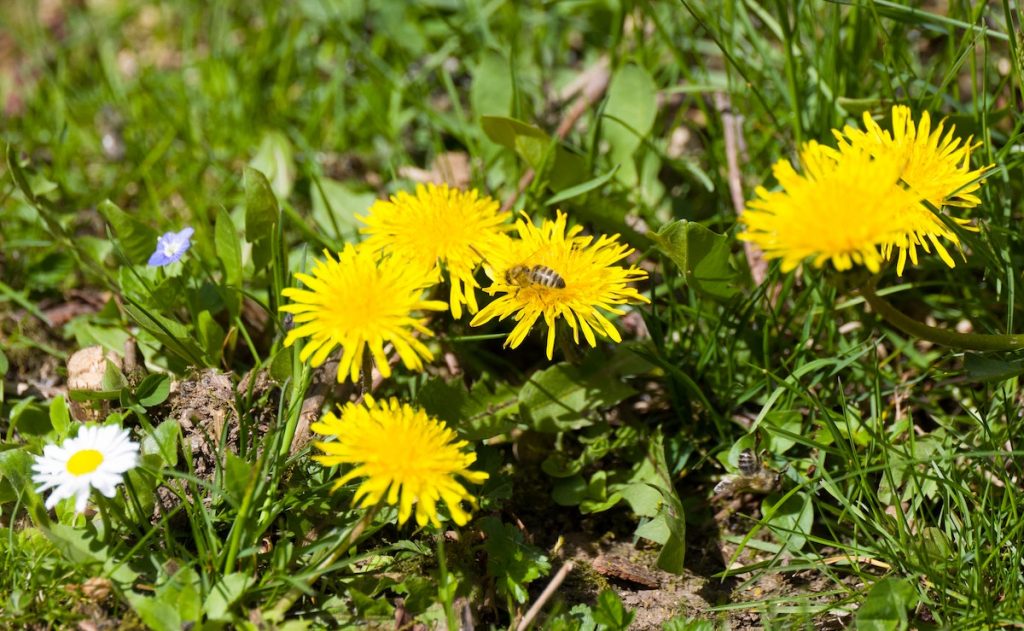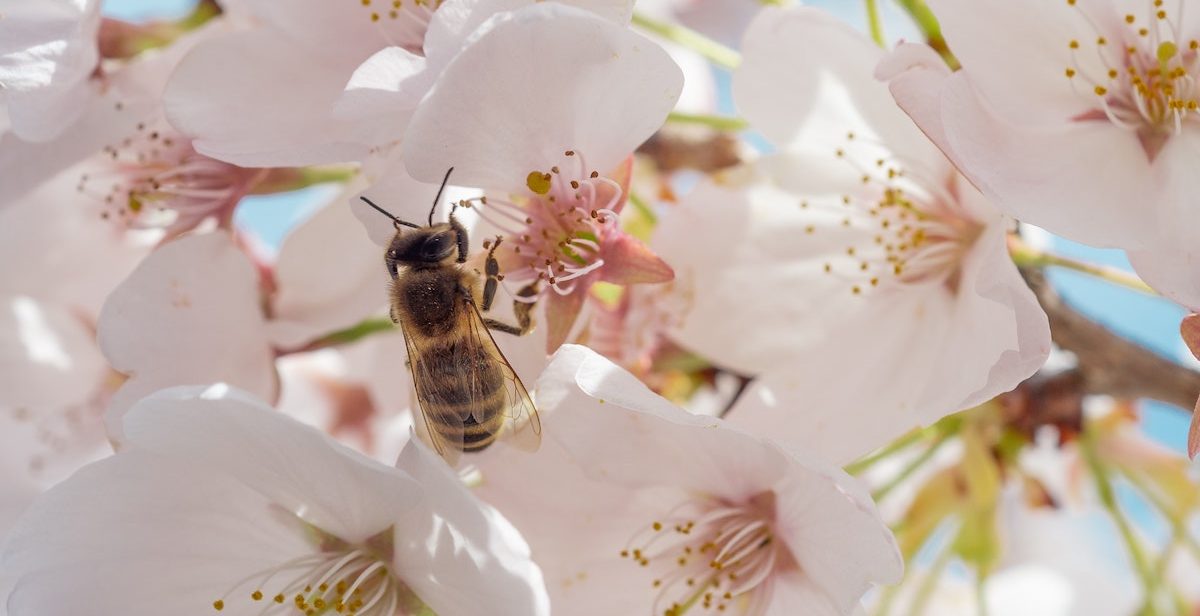Bees and other pollinators play a crucial role in maintaining our planet. You probably know that trees and plants are vital for our survival. They provide oxygen, store carbon, stabilise the soil and provide life and homes for animals of all shapes and sizes. And that’s not to mention the abundance of materials they provide. So how can we help bees and why should we boher?
How do bees help in pollination?
I’m sure you agree that we need trees and plants. But trees and plants can’t exist without pollination. That is the delivery of pollen to the female part of a plant.
The male part of a plant makes pollen, which contains the genetic information needed to reproduce. Wind, water, bats, birds and insects help spread this pollen, and a pollinated plant produces seeds. It’s a pretty efficient system.
But we’re disrupting that system. According to Greenpeace, the three biggest reasons for this are chemical use, loss of habitat and climate change. But many pollinators are in decline, so why the buzz around bees in particular? Bees are important because they pollinate on a much larger scale than any other pollinators.
A world without bees
Have you ever wondered what would happen in a world without bees? There would be major disruptions to our ecosystems. Many plants have adapted to be pollinated by specific bees. Without human intervention, they would die off, and if this were to happen, it would have a ripple effect on the wider ecosystem, resulting in other organisms becoming extinct too.
Without bees, plants would produce fewer seeds, leading to fewer plants. This would further alter ecosystems. Animals relying on these plants would have less food to eat and could potentially die out.
Bees pollinate lots of our fruit and vegetables and we couldn’t grow many of them at such a large scale, or so cheaply, without them.

How to help bees
It’s clear that we definitely need bees and other pollinators. But what can you do to protect bees? Thankfully, there are lots of easy ways to help the bees.
1. If you have a garden, plant it with nectar and pollen-rich flowers that bloom throughout the year.
2. Provide the bees with a comfy home. Buy a ready-made bee hotel or make your own out of natural materials.
3. Even if you only have a balcony, you can still do your bit by filling pots with flowering plants and providing bees with drinking water.
4. If you find yourself reaching for the lawnmower to get rid of the ‘weeds’ such as dandelions and clover, stop! Give yourself a well-earned rest because wildflowers are a food source for bees.
5. Avoid chemicals as much as you can and never spray on open flowers.
How to help a dying bee
If you see a bee on the ground not doing much, it could be exhausted and in need of a pick-me-up. Mix two tablespoons of white, granulated sugar with one tablespoon of water. Put it near the bee so it can help itself to a sip of energy drink.
Bees have been around for millions of years, working hard to pollinate our plants. Not only that, honeybees provide us with their delicious honey. The least we can do is show them some sweetness in return.

